Councillors to run in the 2018 Victorian State Election
Local government is a significant sector in Victoria. It is a large employer across 79 local councils, employing over 43.5k staff, governed by 641 elected councillors. The sector manages annual revenue of $9.9 billion.
The Federal and State government delegate the delivery of critical services to local government – this is not surprising given that the sector has the closet touch-point of any level of government with the communities in which people live and work. And, as a result, local government is often at the forefront to lead social change.
However, this scope and complexity of the business of local government is not well understood.
The responsibilities and role of local government and elected councillors in Victoria are currently prescribed under the Victorian Local Government Act 1989.
A number of Victorian elected councillors have recently put up their hand to run in the state election and the VLGA wish them well in their endeavours - they will - if successful, bring a wealth of community understanding as well as fiscal responsibilities to their elected parliamentary roles.
However, Councillors standing as candidates for the upcoming state election need to be cognisant of the requirements under the Local Government Act 1989.
Councillors standing as candidates for the upcoming state election must ensure that they continue to comply with the requirements of the Local Government Act 1989 (Act) during the election period. Sections 76B and 76BA of the Act provide guiding principles for councillors’ conduct at all times. Specifically, under s.76B, councillors must:
(a) act with integrity; and
(b) impartially exercise his or her responsibilities in the interests of the local community; and
(c) not improperly seek to confer an advantage or disadvantage on any person.
In addition, under s.67BA, councillors must:
(a) avoid conflicts between his or her public duties as a councillor and his or her personal interests and obligations;
(b) act honestly and avoid statements (whether oral or in writing) or actions that will or are likely to mislead or deceive a person;
(c) treat all persons with respect and have due regard to the opinions, beliefs, rights and responsibilities of other councillors, council staff and other persons;
(d) exercise reasonable care and diligence and submit himself or herself to the lawful scrutiny that is appropriate to his or her office;
(e) endeavour to ensure that public resources are used prudently and solely in the public interest;
(f) act lawfully and in accordance with the trust placed in him or her as an elected representative;
(g) support and promote these principles by leadership and example and act in a way that secures and preserves public confidence in the office of councillor.
These principles require councillors to put their councillor duties – acting in the interest of their local municipal community – ahead of their private interests, including those as a candidate. These principles imply that councillors need to be taking all necessary steps to avoid any perceived or actual conflicts between their public interests and duties as a councillor and their private interests and duties as a candidate.
To avoid any perceived or actual conflicts of interest, the VLGA recommends councillors who are contesting as candidates for the November state election to take leave during the election period. During leave, the councillor should:
- Hand back any council property (including all electronic equipment, business cards and mayoral car if applicable)
- Avoiding social media posts from any council or councillor related profiles
- Avoid attending council hosted or related events such as citizenship ceremonies
If a councillor is elected as a member of parliament, section 28A of the Act requires that they resign as a councillor before being sworn in as a member of parliament, with penalties for non-compliance.
ENDS
Please attribute to Kathryn Arndt Chief Executive Officer
.
The VLGA acknowledges the Traditional Owners of Country throughout Victoria and recognises their continuing connection to land, waters and community. We pay our respects to the Traditional Owners, their elders past, present and future, and to their cultures.
Disclaimer:
The advice provided by the VLGA is intended to be guidance only. It is not a substitute for legal or formal advice from relevant regulatory bodies.
© Victorian Local Governance Association 2023




